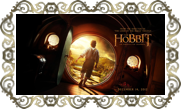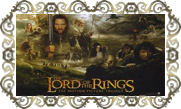

Will we ever see The Silmarillion on the big screen? (07.10.14 by Pieter Collier) - Comments
|
In December, with the release of The Hobbit: The Battle of the Five Armies, Peter Jackson finishes his Hobbit trilogy - and in one go concludes what he sees as a six-part films series. Of course we will then see some extended editions and after that probably a dvd box that includes both The Hobbit and The Lord of the Rings. But after that, or so it would seem, Jackson’s Middle-earth journey will finally be over.
However, for some time now fans have wondered if there isn't one more work of Tolkien that Peter Jackson could adapt to the big screen. The Silmarillion, preceding both The Hobbit and The Lord of the Rings, is the project many desire to see adapted to film. Some want multiple films, others hope for a never-ending TV series. Essays have been written about how The Silmarillion would fare as a film trilogy and lists have been compiled such as the 10 Reasons Peter Jackson Must Make The Silmarillion. We have seen the birth of screen writers guilds who are compiling the best possible script for The Silmarillion and many fan made productions that either bring us trailers or even complete fan movies. |
The reality, however, is that The Silmarillion will most probably remain unfilmed. As Peter Jackson explained recently at a press conference at Comic-Con International:“J.R.R. Tolkien sold the film rights to The Hobbit and The Lord of the Rings in the 1960s. The Silmarillion wasn’t written yet. It wasn’t even written in his lifetime. It was written by him and, partly, his son finished it after his death and published it after the professor had died. So, the film rights are with them, and the estate doesn’t have any interest in discussing film rights with anybody. So that’s the situation there. They’re not as untangled as The Lord of the Rings and The Hobbit."
Of course we all know that Tolkien began working on the stories that would become The Silmarillion in 1914, long before selling the movie rights of The Hobbit and The Lord of the Rings, and wrote and rewrote many of the tales for the rest of his life. So Peter Jackson's answer was not too accurate.
|
Long before that, in 2012, when questioned by a Tolkien fan at Comic Con whether he planned to continue making Middle-earth related films and more specifically The Silmarillion, Peter Jackson responded:“I don’t think the Tolkien estate liked those films. I don’t think The Silmarillion will go anywhere for quite a long time.”
And it is true, Peter Jackson will never obtain the rights to make a film adaptation of The Silmarillion, but nor will any other film-producer. Unlike The Lord of the Rings and The Hobbit, the film rights for The Silmarillion were never sold and still remain with the Tolkien family. Further, The Silmarillion was compiled, edited and published posthumously by Christopher Tolkien. To say that J.R.R. Tolkien considered it his greatest work and that his son Christopher has a strong emotional attachment to it is only the beginning of a long story. The chances of seeing The Silmarillion turned into a movie are probably as slim as winning the lottery, even if you decide to donate the winnings to some worthy cause. |
Christopher Tolkien took upon himself a very big task after his father’s death. After becoming the guardian of the copyright of his fathers work, he started working through the 70 boxes of archive material left by his father, each box filled with thousands of unpublished pages. Together with the acclaimed fantasy author Guy Gavriel Kay, Christopher collated, edited and expanded the undated and unnumbered pages, producing The Silmarillion in 1977. And this was just the beginning of one of the most impressive literary achievements in history. Unfinished Tales of Númenor and Middle-earth, a collection of stories and essays that were never completed by his father, was also edited and published in 1980. Then, for eighteen years, and with absolute dedication to preserving his father’s legacy, Christopher Tolkien worked on editing the remaining unfinished material, gradually releasing a massive twelve volumes of The History of Middle Earth. In 2007 he released the completed version of The Children of Hurin, which was originally conceived by his father in the late 1910s and had in parts been published before – in The Silmarillion, Unfinished Tales, The Book of Lost Tales and The Lays of Beleriand. The Legend of Sigurd and Gudrún, which was released in 2009, retells the legend of Sigurd and the fall of the Niflungs from Germanic mythology. It is a narrative poem composed in alliterative verse and is modelled after the Old Norse poetry of the Elder Edda. Christopher Tolkien supplied copious notes and commentary upon his father's work. In 2013 he released The Fall of Arthur, a long narrative poem composed by Tolkien in the early-1930s. Beowulf: A Translation and Commentary followed in May 2014, a prose translation of the early medieval epic poem Beowulf from Old English to modern English, translated by Tolkien between 1920 and 1926, and once again edited by his son Christopher. And then there are other works like Mr. Bliss, The Father Christmas Letters, and so on… and we do not even know what further book Christopher Tolkien might be working on now.
Having dedicating most of his life to his father’s work it can hardly come as a surprise that Christopher’s is the most authoritative judgement upon Peter Jackson’s movie adaptations of his father’s works.
And what Christopher believes is that Tolkien now has become a monster “…devoured by his own popularity and absorbed into the absurdity of our time”:
“The chasm between the beauty and seriousness of the work, and what it has become, has overwhelmed me. The commercialization has reduced the aesthetic and philosophical impact of the creation to nothing. There is only one solution for me: to turn my head away.”
| It took a very long time for Christopher Tolkien to finally give us his opinion – which he did in an interview with LeMonde, one of his first in forty years. It is clear that the appalling treatment both the family and Tolkien’s publisher’s have been subjected to over the last decade by the film studios has finally taken its toll. Having carefully avoided the press and never before released an official opinion about Peter Jackson’s The Lord of the Rings film trilogy, Christopher finally burst out: “They eviscerated the book by making it an action movie for young people aged 15 to 25. And it seems that The Hobbit will be the same kind of film.” |
He is probably correct; and most who have loved his works do realize that the movies, a product of today, and all the games that have since followed, are better described as ‘fan fiction’ than ‘based upon the works of J.R.R. Tolkien’.
Perhaps Professor Tom Shippey gave us the best summary of the situation in the essay on Peter Jackson films that was added to the third edition of The Road to Middle-Earth. Shippey observes that Jackson “is quicker than Tolkien was to identify evil without qualification, and as a purely outside force… there is the kernel here of a serious challenge to Tolkien’s view of the world, with its insistence on the fallen nature even of the best, and its conviction that while victories are always worthwhile, they are also always temporary. And this could, at last, be a problem not created by any failure to perceive ‘the core of the original’ but a grave and genuine difference between the two different media and their ‘respective cannons of narrative art’.”
| Title: The SilmarillionAuthor: J.R.R. TolkienEditors: Christopher Tolkien and Guy Gavriel KayPublisher: Mariner BooksPublication Date: Reissue edition, 7 Oct 2014Type: paperback, 384 pages ISBN-10: 0544338014ISBN-13: 978-0544338012 |
References
Please also read Why Peter Jackson will never film The Silmarillion by Olga Hughes - the inspiration for this article.
Spread the news about this J.R.R. Tolkien article:














